Body Image
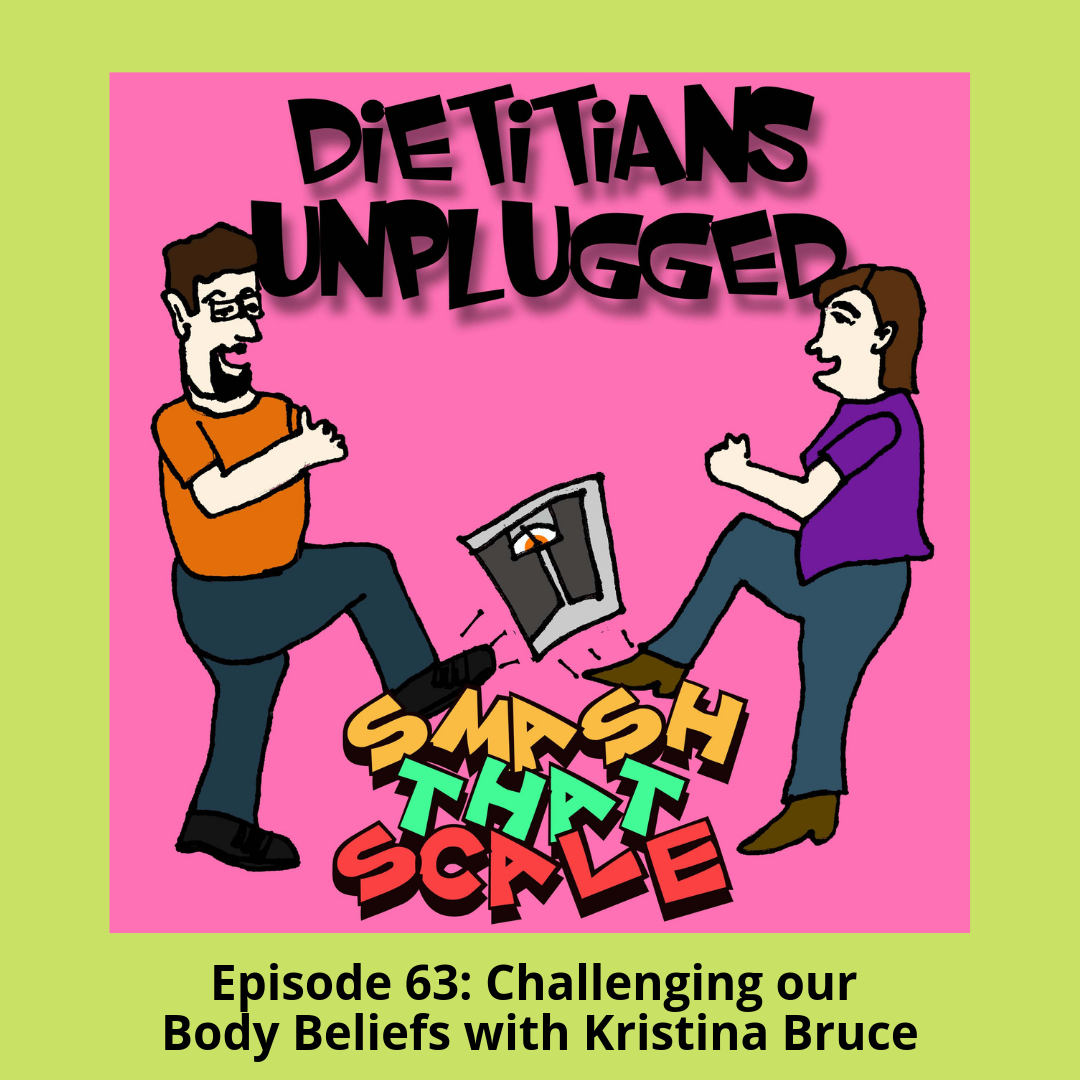
Aaron and I welcomed Kristina Bruce to the Dietitians Unplugged podcast to help our listeners learn to challenge negative, unhelpful beliefs about themselves and their bodies.
Kristina is a certified Integrative Life Coach, Body Acceptance Coach and Certified Body Trust® Provider. She employs Byron Katie’s method, The Work, to help clients question beliefs that cause them stress and to help see those beliefs for what they are — thoughts, not reality. During this interview, we were so grateful to Kristina for sharing an important tool to help do this work and this episode will be pivotal for anyone hoping to get free from the negative beliefs they feel about their body.
Show Notes:
Visit Kristina Bruce at her website
Subscribe and get my free guide:
Why you overeat …and what to do about it
Click here if you just want my newsletter!
Body Image
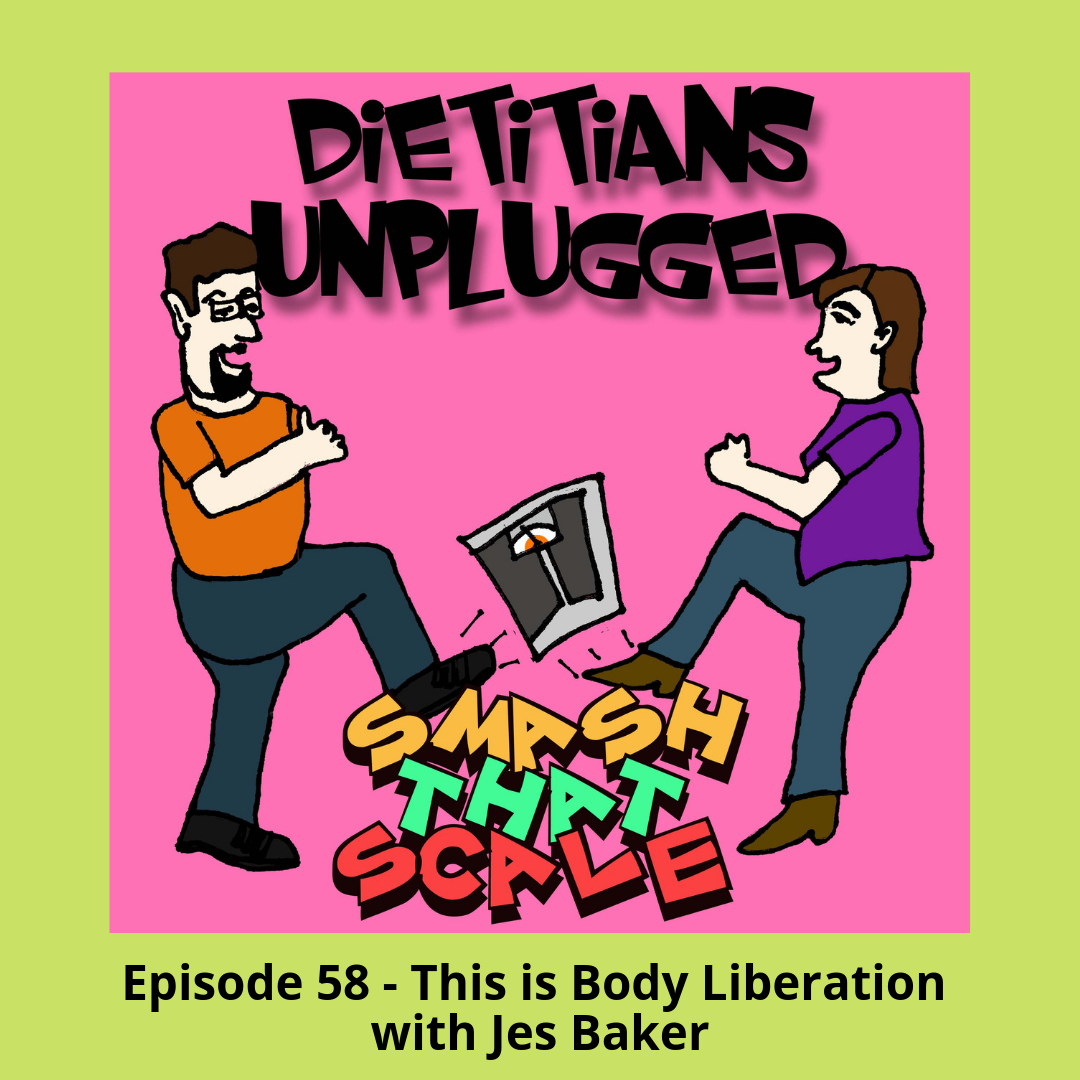
The Dietitians Unplugged podcast was excited and honored to host Jes Baker, aka The Militant Baker, author of the books Landwhale and Things No One Will Tell Fat Girls: A Handbook for Unapologetic Living to talk about what body liberation means and how it can change our lives for the better.
Jes is a positive, progressive, and magnificently irreverent force to be reckoned with in the realm of self-love advocacy and mental health. She is internationally known for preaching the importance of body liberation, hard conversations, strong coffee, and even stronger language. Jes burst onto the body image scene when she created her own ads mocking Abercrombie & Fitch for discriminating against all body types – a move that landed her on the Today Show and garnered a loyal following for her raw, honest, and attitude-filled blog missives.
In this fantastic episode, she tells us about her revelation that she hadn’t been a fat child, turning insults into cool nicknames, and how talking about mental health can be healing.
Show notes:
Learn more about Jes Baker
Read Jes’ writing at The Militant Baker
Check out Jes’ books Landwhale and Things No One Will Tell Fat Girls
Subscribe and get my free guide:
Why you overeat …and what to do about it.
Click here if you just want my newsletter!
Body Image
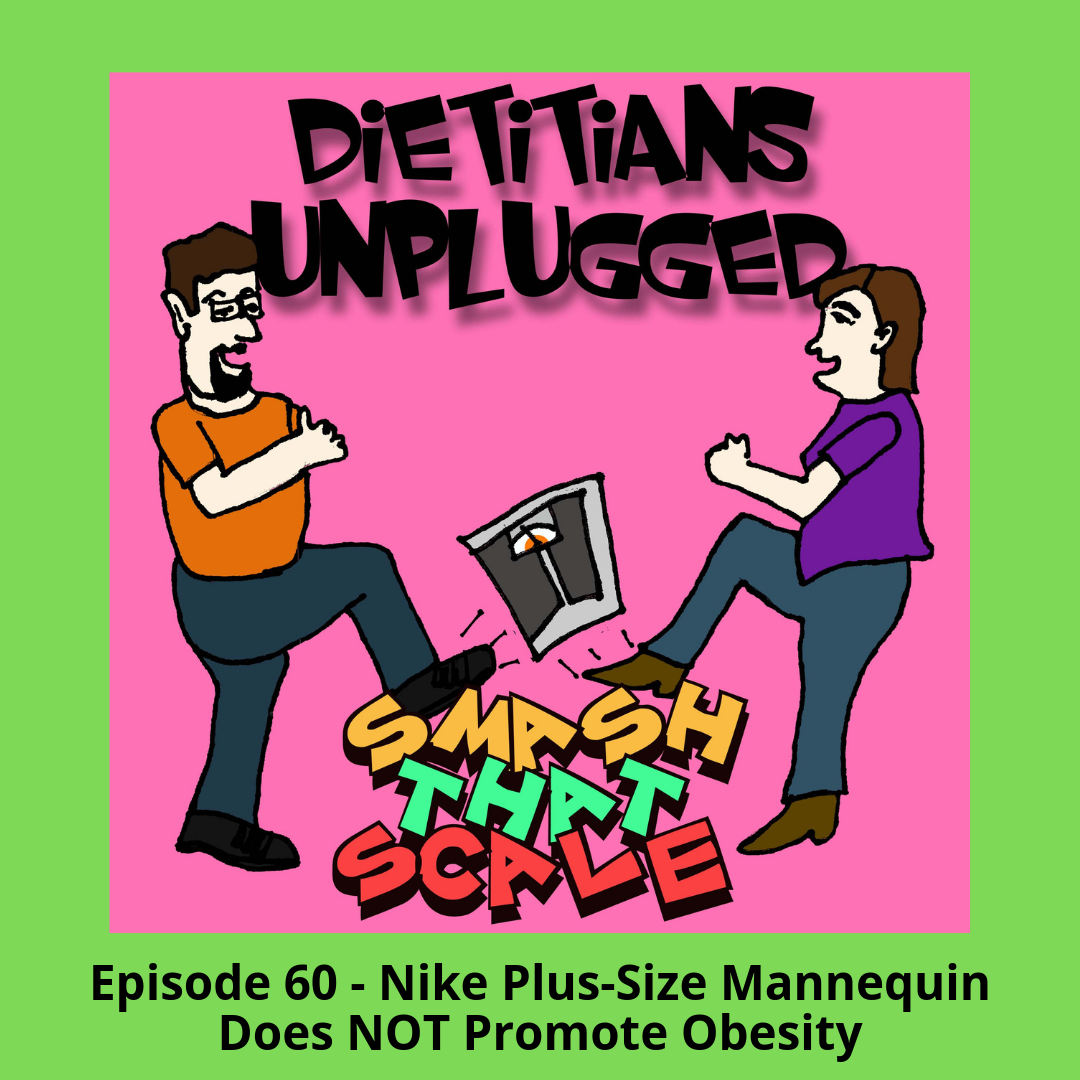
Nike recently unveiled a new plus-size line of athletic clothing and with it, a plus-size mannequin on which to display the clothing. Makes sense, right? A plus-size mannequin to display plus-size clothing.
One journalist, however, railed against this move as “promoting obesity.” In this Dietitians Unplugged episode, Aaron and I talk about the reaction to the mannequin, both good and bad, how promoting obesity is not actually “a thing”, and the role that internalized weight stigma may have played in this reaction.
Show notes:
I’m not linking to the original article because it’s pretty mean, and you can search the Tanya Gold/Nike article if you want to read it (it’s pretty easy to find). Instead, here are some great articles clapping back.
Telegraph’s Fatphobic Take On Nike’s Plus-Size Mannequins Receives Backlash
The Real Issue With Nike’s Plus Size Mannequins
Dances with Fat: Nike’s Plus Size Mannequins Uncover the Truth About Weight Stigma
Study showing lower mortality in “overweight” category (referenced)
Subscribe and get my free guide:
Why you overeat …and what to do about it
Click here if you just want my newsletter!
Body Image
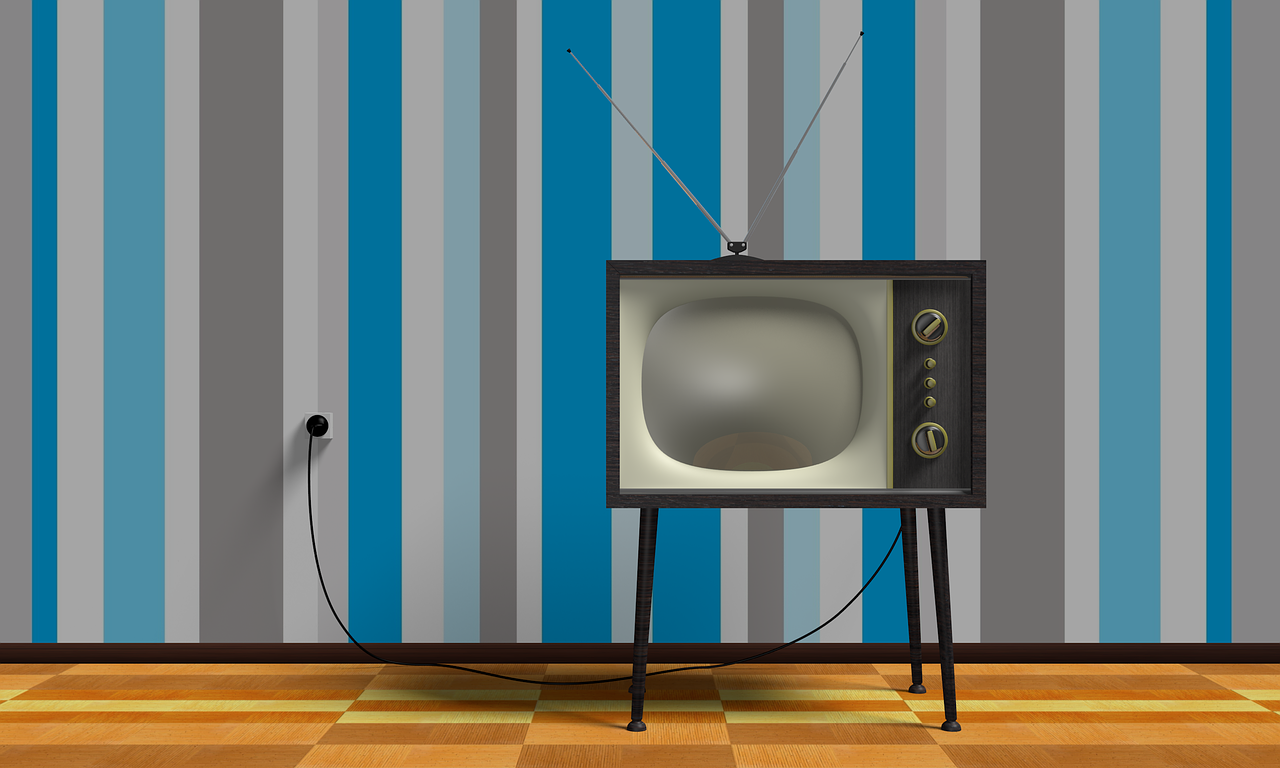
I’m a long-time TV fan but as I get older, my time is precious. I want to watch things that I find really entertaining. And with the rise of more fat representation on TV, there are more things for me to think about watching. But just because something includes a fat person doesn’t necessarily mean it will be a great show.
So in this episode, Aaron and I discussed the viewing options presented over the past year (thanks to streaming!) and offered up some criticism to help you in deciding what to watch. And it is summer after all, which, if you’re old enough, you remember as the time of summer reruns and trying to figure out what’s on that’s good (apparently this is no longer a problem, but nostalgia dies hard in my home).
In this episode, we talked about the TV show Dietland, based on the book of the same name by Sarai Walker, that aired last year on AMC and now streams on Hulu, and Shrill, which debuted this spring and runs on Hulu as well. We also mention a few shows with dubious fat representation that we have not and will not be watching (return of The Biggest Loser, Insatiable) for a variety of reasons.
Subscribe and get my free guide:
Why you overeat …and what to do about it
Click here if you just want my newsletter!
Body Image

I rarely bring up the concept of thin privilege with thin people unless the situation warrants it (like when they are tsk tsking about fat people). My goal is always to try to bring people into the fold with kindness and compassion, and I find bringing up something like thin privilege gets them on the defensive fast and shuts everything down and my seed planting goes to waste. Some might disagree with this philosophy and that’s okay.
I do talk about this quite a bit, however, with my clients in larger bodies because it provides a framework and understanding for why they experience weight stigma, and for why they long to be in thinner bodies. Who doesn’t want privilege?? We all want that.
At the same time, I strongly feel that dietitians and dietitians-to-be — thin or not –absolutely must understand this concept if they want to practice compassionate care. At some point, dietitians will treat people in fat bodies, and it is imperative that they understand how people suffer so under such an unfair system of privilege. (It’s also important to understand that we need to change the unfair system and not the body size)
So when Aaron and I gave an introductory talk on Intuitive Eating to a large group of dietetic interns, we were a little surprised at the “feedback” (more like vitriolic criticism) we got from several attendees for mentioning thin privilege (an example of the aforementioned shutting down). They felt they had been attacked personally by even the mention of thin privilege, even though no person in the room had actually been identified by us as having it — we were simply bring it up as a concept to consider when treating people in larger bodies.
Since we consider all life experiences fodder for a podcast, this was our effort to process the whole experience and talk about why acknowledging thin privilege exists is so important (I had it once and can tell you it exists). If you are in a smaller body, I hope you’ll listen to this podcast with an open heart and mind, because no matter what, all bodies are good bodies, and we always appreciate our thin allies.
Subscribe and get my free guide:
Why you overeat …and what to do about it
Click here if you just want my newsletter!
Body Image
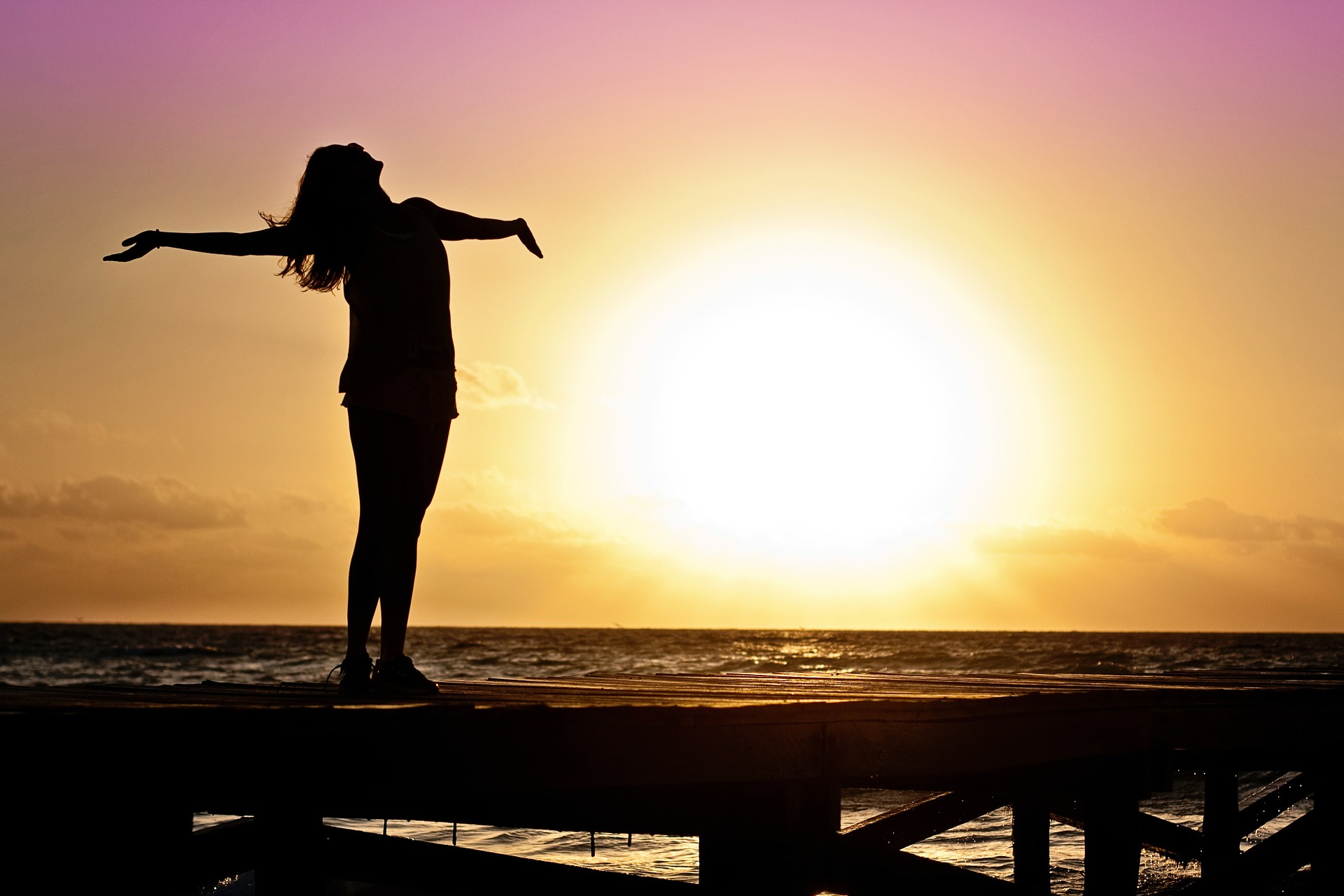
A few months ago I went to a Body Image Workshop hosted by Marci Evans, RD and Fiona Sutherland, RD. But…what’s a dietitian’s work got to do with body image healing??
When we are in school getting our nutrition degrees, we learn all about food safety, how to counsel a nutritious diet, a metric ton of chemistry, and medical nutrition therapy to treat various conditions and diseases. We spent some time learning nutrition counseling techniques too.
But rarely are we prepared for what is often at the root of so many eating problems: a fractured relationship with our body image.
In school, they never gave us the language to understand this, for ourselves or other people, and they certainly never gave us the idea that we might also help the healing.
But in fact, we need to be able to help our clients heal not just their relationship to food and eating, but also their bodies.
I’m not talking about doing the work of a therapist. I’m talking about being able to listen and validate and understand WHY someone could hate their bodies so much that they lose their ability to eat in any peaceful, nourishing way. And helping them to find ways to reconnect with their bodies with self-compassion.
We CAN and SHOULD talk about this with our clients, and in the below episode of Dietitians Unplugged, Aaron and I talk more about how we as dietitians can start doing this work.
Subscribe and get my free guide:
Why you overeat …and what to do about it
Click here if you just want my newsletter!
Body Image
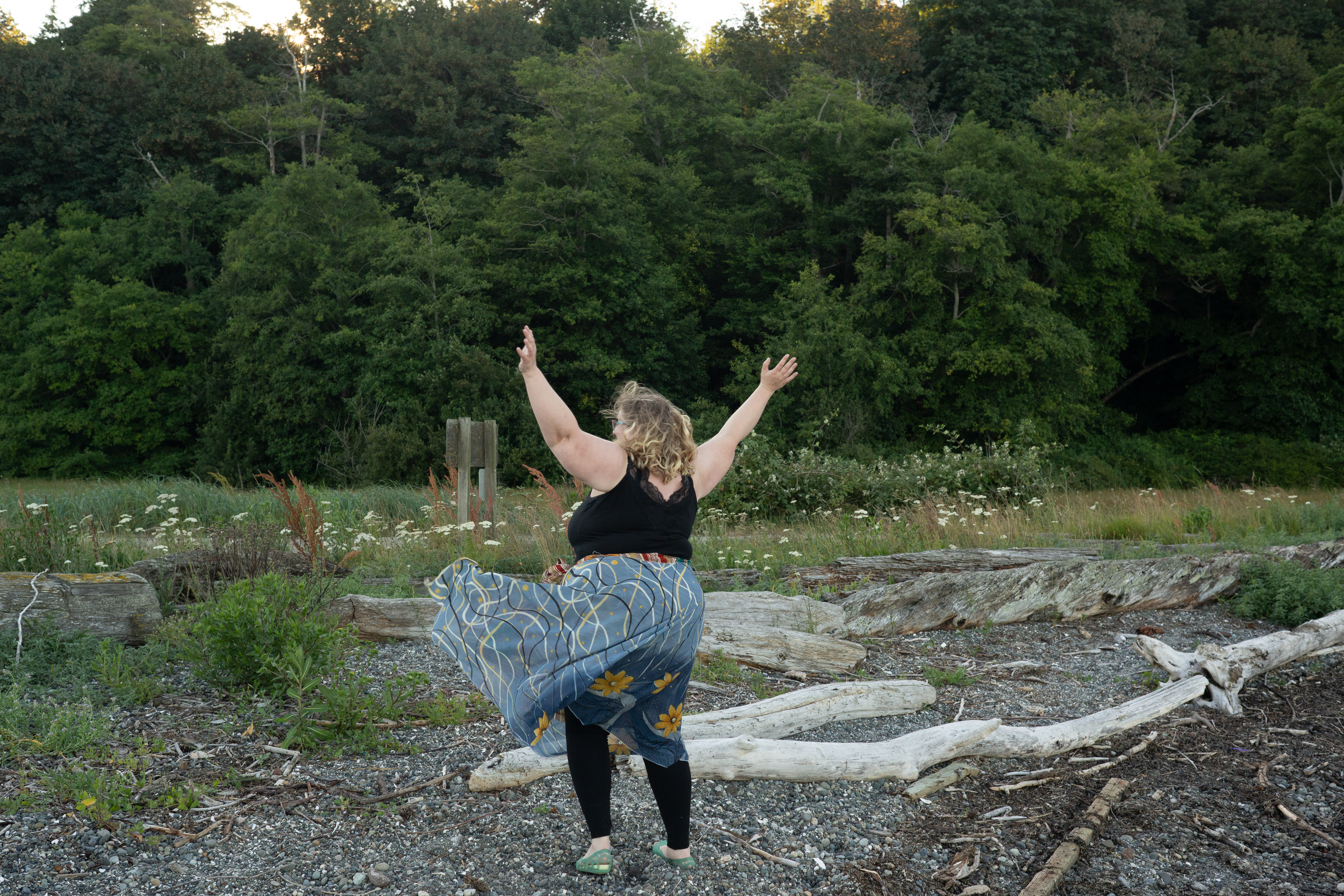
Photo courtesy of RepresentationMatters.me
“I used to love my thinner body, even though I hated dieting. Will I ever love my body again?”
This is an occasionally-heard refrain heard from some of the brave souls who have chosen to give up the pursuit of weight control through dieting and have instead opted for the unknown of what their bodies will do in response to a more peaceful relationship with food.
To review, there are three possible outcomes of giving up dieting:
- You may lose weight.
- You may gain weight.
- Your weight may stay the same.
For anyone experiencing any of these outcomes (even weight loss), the work of body acceptance is necessary to help clear the path to a more peaceful relationship with eating. This is the work of body image healing.
I love the goal of body neutrality as a result of the body image healing work that we do. Body neutrality, to me, means you don’t have to feel in love with your body or how it looks, but you don’t loathe it either. You’re able to see your body as an instrument, not an ornament, and get on with your life and all the things you want to experience in it.
But sometimes we wonder if we will ever get to a place of loving how our bodies look. For some, body neutrality doesn’t feel like enough, and they remember a time when they were maintaining a lower body weight, getting societal accolades, and enjoying the way their bodies looked to the world.
Rarely do we seem to question why we need to love how our bodies look. Would we have this same desire to love our appearance if there weren’t such strong cultural messages about beauty standards? Would this need exist if we were stranded alone on a deserted island like Tom Hanks in the movie Castaway? I strongly believe the answer is no.
That’s why we need to talk about self-objectification, which is experiencing one’s body not from the inside, but from the outside, looking in. It arises from an unfair system in which women are judged more for how they look and not for what they do (one of the many unpleasant side effects of patriarchy).
We are presented with a relentless barrage of media images of women and messages around what constitutes the “right” look (and from the mere absence of other types of images, we can easily infer what constitutes the “wrong” look). It’s so easy to constantly compare ourselves to these images and develop that outside-in-gaze that becomes more dominant than the experience of being in our bodies.
I think it’s lovely to be able to look in the mirror and say, “Yep, good outfit” or “Awesome style I’ve got going today.” That’s a world away from, “I love how my body is mirroring unrealistic cultural beauty standards by being as small as it can today!” The first two statements are about objects on your body; the latter statement is about your body as an object.
For me, opting for body neutrality and appreciation of its usefulness was a far saner goal than needing to love how I looked on a physical level, because I no longer wanted to be a mere object to be admired.
I don’t actually think we need to love how our bodies look to live a richer life. We do need to understand why that desire exists, though.
Here are two great blog posts about self-objectification from one of my favorite non-diet, pro-body sites, Beauty Redefined:
Selfies and Self-Objectification
Running from Self-Objectification
I hope you go straight down the rabbit hole of this site because they have so many wise things to say on the subject of self-objectification!
Need help managing your diabetes, pre-diabetes, or insulin resistance?
Care for Diabetes is back! Two tracks are available, starting on September 11 and September 13. Rebecca Scritchfield, dietitian and author of the book Body Kindness, and I will be providing sound and compassionate non-diet, non-restrictive, non-weight-focused advice and support for managing your blood sugars. Click on the image below for all the details about this 4 week virtual counseling group and how to register!
Thank you to Lindley Ashline at RepresentationMatters.me for her free stock photo images!
Subscribe and get my free guide:
Why you overeat …and what to do about it
Click here if you just want my newsletter!
Body Image
Dietitians Unplugged Episode 37 – Aaron and Glenys Tackle Their Inner Critics
We all have an inner critic. I don’t know anyone who doesn’t. It’s the voice that’s try to keep us safe by avoiding unnecessary risk.
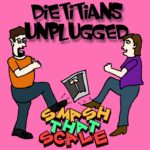
So, yes, sometimes that little voice can be really helpful in keeping us safe…but sometimes it can hold us back by sending damaging and unhelpful thoughts.
In this Dietitians Unplugged podcast episode, Aaron and I talked about our own inner critics, how they manifest, and how we deal with them. This is a truly unplugged (and sometimes unhinged!) discussion that we’re sure you’ll enjoy and hopefully will give you a few more tools for your self-care toolbox.
Dietitians Unplugged Episode 38 – ED Treatment for Marginalized People with Gloria Lucas
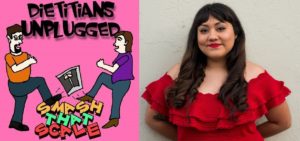
In this fabulous episode, Aaron and I were thrilled to welcome to the podcast Gloria Lucas, founder of Nalgona Positivity Pride (NPP). I got to see Gloria speak a few years ago at the 2016 BEDA conference on the role of colonialism in historical trauma and we’ve been excited to have her on ever since then.
Gloria shared her story of how and why she came to found NPP, which helps to provide eating disorder resources to marginalized people. She also talked about how eating disorder communities must learn to do better to include people of color into the discussion and make treatment more available and inclusive of marginalized people.
Links:
Nalgona Positivity Pride Etsy Store
Dietitians Unplugged Episode 39 – Is Sugar Addiction a Real Thing? with Tiffany Haug
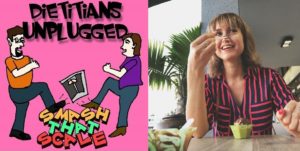
Ever wonder if you’re addicted to sugar? Or some other kind of food? Aaron and I talked to Tiffany Haug, MS, RD, EDOC, who broke down the science of addiction for us, and explains why your diet history makes all the difference in how you approach highly palatable foods. Tiffany also talked about the problem with how food addiction is studied and the problems with the Yale Food Addiction Scale.
Subscribe and get my free guide:
Why you overeat …and what to do about it
Click here if you just want my newsletter!
Body Image
Dietitians Unplugged Podcast Episode 34: Healthism vs. Self-Care with Lucy Aphramor
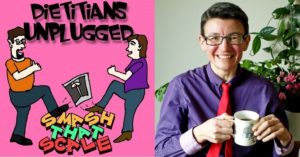
I’ve been a little remiss in the last few months about updating this blog with our latest Dietitians Unplugged podcast episodes. I have been crazy busy this past year – in reality, too busy, because I was trying to do way too much.
It took it’s toll. I had to find ways to triage everything in my life. That meant I had to pick between writing, which I really enjoy, and doing the podcast, which I really love too. It even meant I had to let go of things like updating this blog with the podcast, which pricked at me frequently but also was just something I didn’t have room for.
I termed this self-care. No one can do everything all the time. Some things have to go by the wayside. Until something gave way in my schedule (which it finally did) I decided to only do the very most important things in my life — that was spending time with my partner, going to my job, caring for my clients, podcasting and resting.
The topic of self-care makes a great introduction to this podcast we did back in February about the necessity of self-care, and how “healthlism” — the belief that health is our sole responsibility, and even obligation, and is not affected by our economic status, race, environment, sex, etc. — isn’t really making us healthy in any meaningful way.
UK-based radical dietitian Lucy Aphramor guided us through this topic with her usual eloquence (no surprise that she’s also a poet). As a radical dietitian, she focuses on the deep roots of what causes judgement, war and shame.
Dietitians Unplugged Episode 35 – Metaphors & Storytelling in healing Eating Disorders with Dr. Anita Johnston
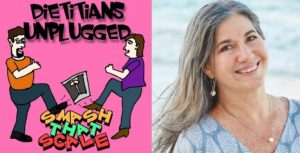
Eating in the Light of the Moon by Dr. Anita Johnson, eating disorder psychologist and storyteller, is one of the seminal works on eating disorders and one of the books that people tell me first helped them in their recovery from EDs and diet culture. We were so thrilled to have Dr. Johnson on our show and talk about how story-telling can be integral to our healing.
In addition to authoring this amazing book, Dr. Johnson is co-creator of the Light of the Moon Cafe, a series of online interactive courses and women’s support circles, and Soul Hunger workshops. She is currently the Clinical Director of Ai Pono Hawaii eating disorder programs with out-patient programs on Oahu and the Big Island of Hawaii, and an ocean-front residential program on Maui.
She also gifted our listeners with this handy guide to help discover the meaning behind your food cravings or phobias.
Dietitians Unplugged Episode Episode 36 – You are More than Your Body with Summer Innanen

One of my absolute favorite people in the body positive, anti-diet world is Summer Innanen. She has a genuine, no BS way about her that I just can’t resist. And it’s not just because we’re both Canadian, I swear!
Summer is a professionally trained coach specializing in body image, self-worth, and confidence. She helps women all over the world through her private and group coaching to break out of the diet culture cage and cultivate their inner, rampant untameability so they can wear, say and do what they want. She is the best-selling author of Body Image Remix, creator of the You, On Fire online program, and host of Fearless Rebelle Radio, a podcast dedicated to anti-dieting, body positivity, and feminism.
Subscribe and get my free guide:
Why you overeat …and what to do about it
Click here if you just want my newsletter!
